Pro-Kremlin militia fired warning shots as unarmed foreign observers tried to enter Crimea on Saturday. The dangerous escalation in the flashpoint Black Sea peninsula saw 40 gunmen in balaclavas and military fatigues fire warning shots above a car moving in front of a convoy of 57 civilian and military observers from the Organisation of Security and Co-operation in Europe (OSCE).
A source with the monitoring mission said "probably three shots" were fired as the OSCE buses tried and failed for the third successive day to check on the frozen conflict that has pitted overpowered Ukrainian troops against what they say are Russian Black Sea Fleet soldiers and Kremlin-backed militias. Russia blamed the OSCE on Friday for making its earlier attempts "without considering the opinions and recommendations of the Russian side (and) without waiting for official invitations from the Crimean side."
The monitoring mission is an instrumental part of a three-pronged push for peace by US President Barack Obama that also includes a call on Russia to pull back its Crimean troops to their barracks and for Ukraine to hold early presidential elections in May. The culturally-splintered ex-Soviet nation of 46 million people has been in upheaval since three months of deadly unrest brought new pro-European leaders to power in Kiev in February and sent ousted president Viktor Yanukovych into hiding in Russia.
The Kremlin accuses the new rulers of fomenting an atmosphere of intimidation against ethnic Russians who make up the majority of Ukraine's south-east that prompted President Vladimir Putin to threaten to use force - a shock decision that has sparked the worst East-West crisis since the 1989 fall of the Berlin Wall.
Russia says it has stepped up protection of its naval base in Crimea and is working together with local self-defence units but refuses to acknowledge deploying extra troops. But Ukrainian Border Guards General Mykola Kovil said on Friday there were now 30,000 Russian soldiers in Crimea - 5,000 more than the contingent allowed under an existing agreement with Kiev.
The escalating tensions prompted Polish Foreign Minister Radoslaw Sikorski - a top proponent of Ukraine's EU integration - to announce on Twitter on Saturday that Warsaw was evacuating its consulate in the Crimean port of Sevastopol that houses the Russian fleet. Russia's decision to flex its military muscle for the first time since it waged a brief war with Georgia in 2008 has prompted Washington to slap visa bans and asset freezes on top Moscow officials while also halting various forms of military co-operation.
The European Union has further threatened to toughen economic sanctions against Russia should it fail to immediately open talks with Ukraine. But Russian Foreign Minister Sergei Lavrov told US Secretary of State John Kerry that any punitive measures would strike back like a "boomerang" against Washington. Those warnings became more concrete on Saturday when a Russian defence official said Moscow was considering halting foreign inspections of its nuclear arsenal in response to "threats" from the United States and the North Atlantic Treaty Organisation (NATO).
"The unfounded threats towards Russia from the United States and NATO over its policy on Ukraine are seen by us as an unfriendly gesture that allows the declaration of force majeure circumstances," the unnamed high-ranking defence ministry official said in a statement to all Russian news agencies. The arms inspections are carried out in line with the historic 2010 Strategic Arms Reduction Treaty (START) with the United States - a highlight of Obama's diplomacy - and the Vienna Document of 2011 on confidence-building measures between OSCE member states.
The state-run energy giant Gazprom had begun to pile the pressure on Friday by warning Ukraine it may cut off gas shipments on which its economy relies, for the first time since 2009. The halt - ostensibly over debts that the economically struggling nation has been running for years - would almost certainly affect Gazprom's Western European clients and further damage the Kremlin's reputation.
Meanwhile, President Barack Obama and key European allies expressed "grave concern" Saturday over Russia's actions in Ukraine as Washington warned further military escalation could jeopardise chances of brokering a diplomatic solution to the crisis.
The White House said Obama discussed Ukraine in calls with French counterpart Francois Hollande, British Prime Minister David Cameron and Italian leader Matteo Renzi. "The leaders reiterated their grave concern over Russia's clear violation of international law and reaffirmed their support for Ukraine's sovereignty and territorial integrity," a White House summary of the calls said. Obama also hosted a conference call with the leaders of Baltic former Soviet states Lithuania, Latvia and Estonia to discuss the ongoing situation.
BR100
16,307
Increased By
236.2 (1.47%)
BR30
51,537
Increased By
1163.4 (2.31%)
KSE100
157,953
Increased By
1775.7 (1.14%)
KSE30
48,199
Increased By
520.5 (1.09%)















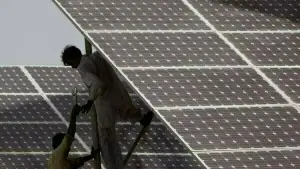
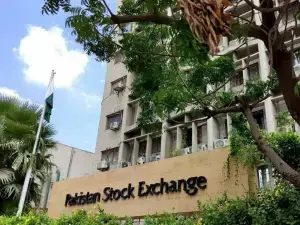
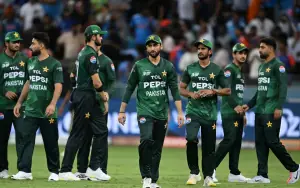


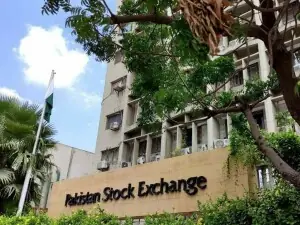
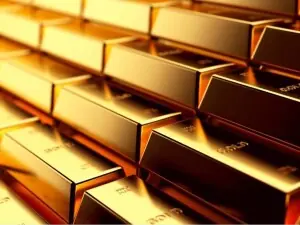
Comments
Comments are closed.